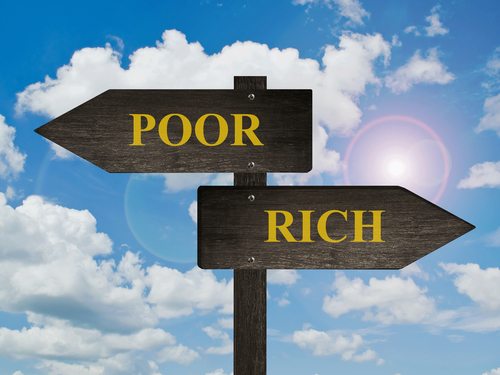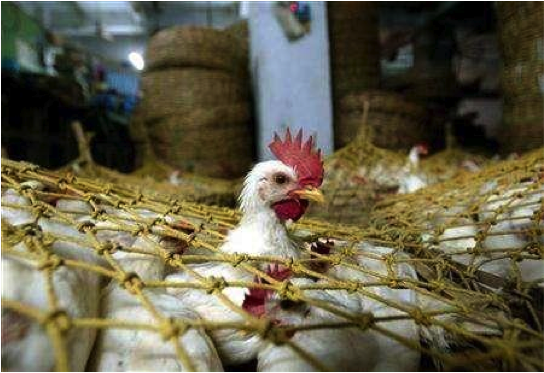SUBMITTED TO - S. B. GARDY DEPARTMENT OF ENGLISH M.K. BHAVNAGAR UNIVERSITY.
Name:- Vala Jyotsna Tanshukhbhai
Class & Semester: - 4 M.A Part -2.
Roll no: - 33
Enrollment No: - PG15101042
Year: - 2015-17
Paper No and Name : -13 New Literature.
Poor – Rich Divide In ‘The White Tiger’.
Introduction

Aravind Adiga is an Indian-Australian writer and journalist. He was born on 23 October 1974 in Madras
Apart from the White Tiger Adiga has written two novels namely.
1. Between the Assassinations and
2. Last man in Tower
The
White Tiger is the debut novel by Indian author Aravind Adiga. It was
first published in 2008 and won the 40th Man Booker Prize in the same
year. The novel provides a darkly humorous perspective of India’s class
struggle in a globalized world as told through a retrospective narration
from Balram Halwai, a village boy.
The
White Tiger by Arvinda Adiga tells two interrelated and interested
stories about Balram and his success in life, his success causes moral
decay. Darwinian concept of survival of the fittest is very applicable
to the novel. But what are really matters a lot in this novel is
changing phase of morality, which can be considered as new morality
which is full of immortal items.
Title Of The Novel


“
The White Tiger” written by Arvind Adiga. Balaram Halwai as a
protagonist of the novel. at last he became the successful entrepreneur.
also Balram Halwai is presented as a modern hero, in the midst of the
economic prosperity of India in the recent past. also we can say that
Balram is representative of the poor in India yearning for their
“tomorrow”. also Adiga’s tries to define that his story is a parable of
the new India with a distinctly macabre twist. he is not only an
Entrepreneur but also a roguish criminal remarkably capable of
self-justification. but here, we can define that the background against
which he operates is one of Corruption , Inequality and Poverty.
However,
at last Balram Become the one of the successful Entrepreneur and later
on when Balram becomes an entrepreneur , he names his taxi company “The
White Tiger Drivers”.
Poor – Rich Divide In ‘The White Tiger’

It’s
really in our country we can’t escape our self because it’s in India
for example poor people are aware that they live life like poor but they
never try to be rich and that is reality of India. So we can say that
Adiga is right in his statement.
“Me, and thousands of others in this country like me, are half-baked, because we were never allowed to complete our schooling.”
We can see it in this photo as under,

Indirectly
Balram try to say about child labor and we can see it at many places.
From those here I put one image but there are many children who unable
to get education. Because they are doing some work and their family
survive on his money. So, they never get time to study and if we think
about girl child so they have to do work at home but never allow to
study. I don’t want to say that all child but many can’t get education
in our country because of these many reasons.
The
White Tiger is singular in its fictionalized portrayal of the
relationship between Balram Halwai and his master Mr. Ashok. the story
exposes the poor-rich divide that surrounds India in the backdrop of
economic prosperity, in the work of the IT evolution. speaking on the
servant-master relationship , Adiga says:
“The
servant – master system implies two things : one is that the servants
are far poorer than the rich – a servant has no possibility of ever
catching up to the master. and secondly , he has access to the master –
the master’s money , the master’s physical person. yet crime rates in
India are very low. even though the middle class – who often have three
or four servants – are paranoid about crime , the reality is master
getting killed by his servant is rare…… you need two things a divide and
a conscious ideology of resentment . we don’t have resentment in India.
the poor just assume that the rich are a fact of life …. but I think
we’re seeing what I believe is a class based resentment for the first
time”(sawhney , 2008)
India has always
been land where extreme of wealth and poverty have existed side by side
.Ancient inequalities still exists in our Indian, and throughout the
novel we see that difference between Poor and rich through the
perspective of Balram Halwai.
Adige has presented the
two opposite side of India: India: of Darkness & Light, in which
Poor people represented Dark side of India while Rich people represents
light side of Indian. But this metaphor “goes in changing its meaning
with different situation. Light & darkness go “.
In
India two things are increasing together and it is increasing speedily
and that is poverty of poor and richness of rich people. In this novel
we find that how Balram Halwai suffers as poor and how Mr.Ashok who
represents rich class made him to suffer with the power of money.
Through various symbols like water buffalo, Dog, Pan, Rooster coop Adige
has tried to show the poor and rich class conflict of India.
Balram
Halwai is the white tiger of the book’s title-a title he earns during
his schooling. He is the son of rickshaw-puller, his family is too poor
for him to be able to finish school and instead he has to work in
teashop .and at that point of time he asks himself that.
“Why
did I grow up breaking coals and wiping tables, instead of eating Gulab
jamuns and sweet pastries when and where I chose to? Why was I lean and
dark and cunning, and not fat and creamy-skinned and smiling, like a
boy rose on sweets would be”.
Balram
wants to escape from the Rooster coop. having been a witness to all of
Ashoke’s corrupt practices an gambling with money to buy politicians, to
kill and to loot, he decides to steal and kill. Adiga delves deep into
his subconscious as he plans to loot Rs.700,000 stuffed into the red
bag.
The Rooster Coop


 All
Roosters are trapped in the Coop. When Roosters are together they feel
uncomfortable. When rooster is taken away to slaughter other roosters
become happy. But the roosters in the coop don’t know that their turn is
the next one.
All
Roosters are trapped in the Coop. When Roosters are together they feel
uncomfortable. When rooster is taken away to slaughter other roosters
become happy. But the roosters in the coop don’t know that their turn is
the next one.
Balram
considers the Rooster coop a unique symbol for the situation of India’s
underclass. It is symbolizes master- slave relationship .Balram a
typical voice of underclass man who is lived in fictive village
Laxmangarh in India.A metaphor Balram employs to describe the Indian
servant/master system. One day in the marketplace, Balram sees roosters
being slaughtered next to other live, caged roosters. The roosters know
they are next, but they do not rebel. Balram observes that servants in
India remain trapped in servitude – but no one breaks out of the
“Rooster Coop” because of family honor
The
novel ‘The White Tiger’ Adiga’s define that the poor and rich divide in
the novel. we can see the Aravind Adiga’s The White Tiger is the story
exposes the poor-rich divide that surrounds India in the backdrop of
economic prosperity, in the wake of the IT revolution.
Adiga
is so pictorial in his description of the protagonist, who plans his
crime well in advance. his disgusting act of spitting repeatedly in the
direction of his village could be a sign of final rejection of
everything he holds dear, to escape from the Rooster coop of misery.
His schooling in crime begins with the reading of Murder Weekly as all drivers do, to while away their time.
“Of
course , a billion servants are secretly fantasizing about strangling
their bosses – and that’s why the government of India publishes the
magazines and sells it on the streets for just four and a half rupees so
that even the poor can buy it”.
He
feels degraded as a human being, deprived of basic human rights to enter
a shopping mall. a poor driver couldn’t enter a mall as he belonged to
the poor class. if he walked into the mall someone would say,
“Hey, that man is a paid driver ! what’s he doing in here !”
There
were guards in grey uniforms on every floor – all of them seemed to be
watching me. it was my first taste of the fugitive’s life. Balram
reminisces one of the newspaper reports on the malls , in the malls of
new India ? the security guards at these shopping malls identified the
poor wearing sandals let in only those wearing shoes, while a poor man
id sandals was driven out. this made a man in sandals explode “am I not a
human being too?”
He is educated in the mean ways of
the rich which he imbibes himself in course of time. Balram , a victim
of rich-poor divide , reverses the role and becomes “Master like
Servant?” . when he is alone he takes pleasure in masochisms.
He
plays the games people play who cannot reach out to be like the master.
he had seen Mr.Ashok enjoying life with girls , frequenting malls and
hotels. out of sheer spite for the rich he serves , he expresses his
frustration in mean acts like those mentioned. his going to the red
light area in search of a prostitute is to satisfy his suppressed
revenge as well.
“The
dream of the rich, and the dreams of the poor – they never overlap , do
they ? see, the poor dream all their lives of getting enough to eat and
looking like the rich. and what do the rich dream of ? losing weight
and looking like the poor”(Ibidem, p.22 ).
Conclusion
The
novel is an excellent social commentary on the poor-rich divide in
India. Balram represents the downtrodden section of our society
juxtaposed against the rich . Deirdre Donahue labels the white tiger an
angry novel about injustice and power which creates merciless thugs
among whom only the ruthless can survive. however, the white tiger
should make every righ thinking citizen to read the signs of the time
and be socially conscious of the rights and duties to each one ,
irrespective of caste , creed or economic status, to prevent create the
type of Ashok and Balram in our society.
To Evaluate my Assignment click here

